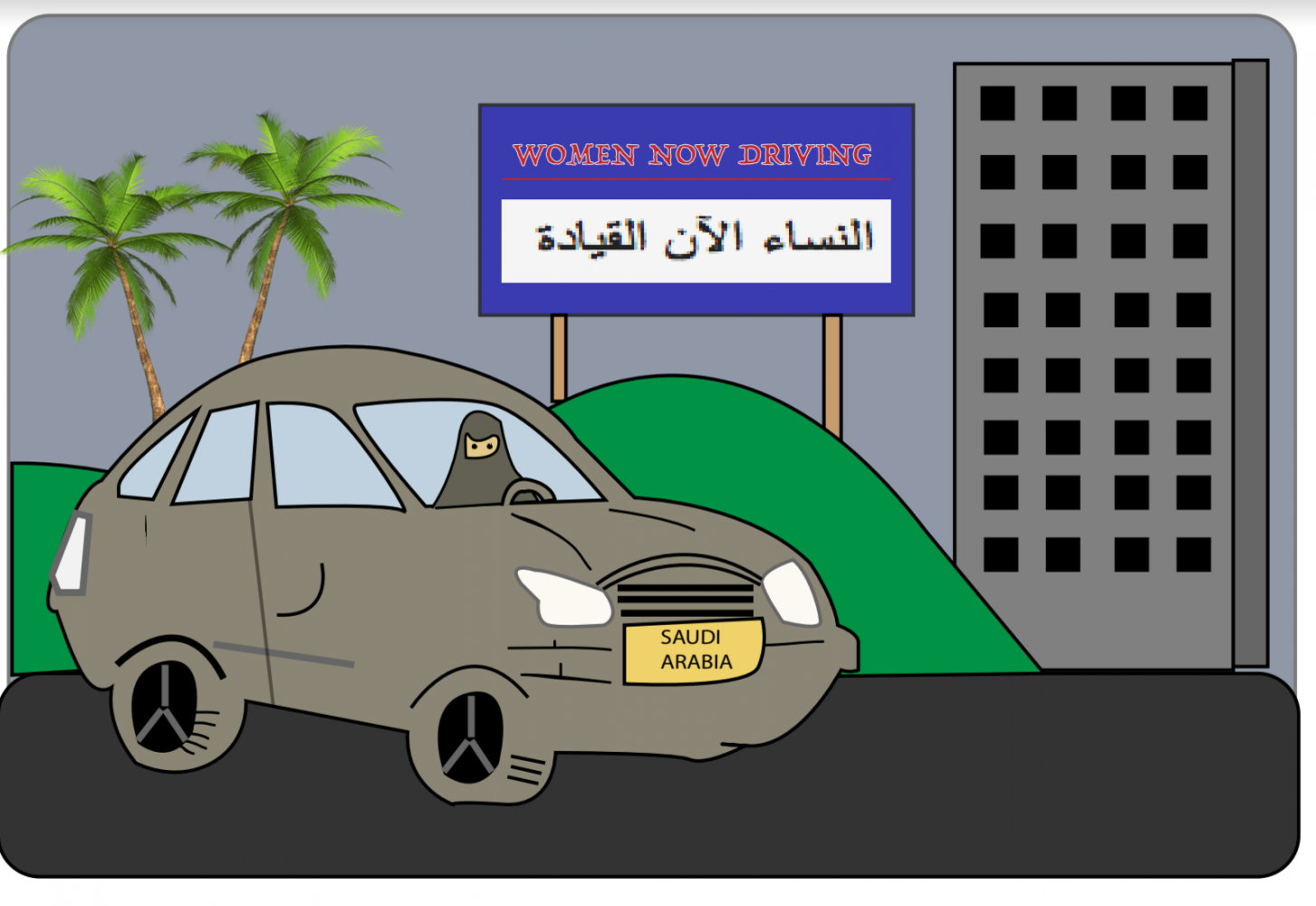By Melanie Lust ’19
Saudi Arabian monarch Salman bin Abdulaziz signed a decree on Sept. 26 to finally allow women to drive by June 2018 – a landmark decision for the kingdom that hasn’t tolerated so much as a bare female limb since 1932.
Although, symbolically, this new legislation could be thought of as a great turning point for women’s rights in the Middle East, it is hardly representative of any sign of leniency from the Saudi Arabian government. The Islamic nation has unrelentingly battered the concept of women’s rights to a pulp for decades, and its unresponsiveness to heinous sexist crimes have earned it a reputation as one of the worst human rights violators in the world.
Sharia, the strict form of Islam under which Saudi Arabia abides, has no explicit driving restrictions for women. However, Sharia law also encourages domestic violence against “disobedient” women, enforces death by stoning for adulterers, allows child marriages and heavily inconveniences women in virtually all court situations – all overtly detailed in the text of the Quran itself.
The most frustrating part about all this is that such an unexpected step forward for women was the direct product of an attempt to remain fundamentalist: to keep Sharia alive. Activists call it progress for women and Islam, as well they should; but the Saudi Arabian government frames it in a radically different context in order to further maintain their ultra-conservative political dogma.
Sheik Mohammed Al-Issa, secretary-general of the World Muslim League, said himself that the driving decision was made in order to be more compatible with Sharia. “The Islamic and universal consensus gave this positive step their blessings,” he said, “because the royal decree applied Sharia Law, which is keen on granting women their rights in every possible way — not only by allowing them to drive.”
It is preposterous to use what should be a feminist victory as evidence that Sharia, of all things, is a supportive system for women’s rights. Such a statement should be condemned by all the same countries that have been condemning the driving ban since it was created.
Ultimately, the lifting of the driving ban exposed some staggeringly low standards for women’s rights in the Middle East and around the world. Is it really something deserving of immense praise if women are no longer considered objects enough to be allowed to drive, or is that a standard every government on the world stage should be expected to meet and exceed? It has taken Saudi Arabia far too long, and with the enforcement of the Sharia system leaning against women’s rights activism like a coffin lid, there is still so much work to do before women will be considered equal in Islamic countries.
Graphic by Jordi Katz ’20














































